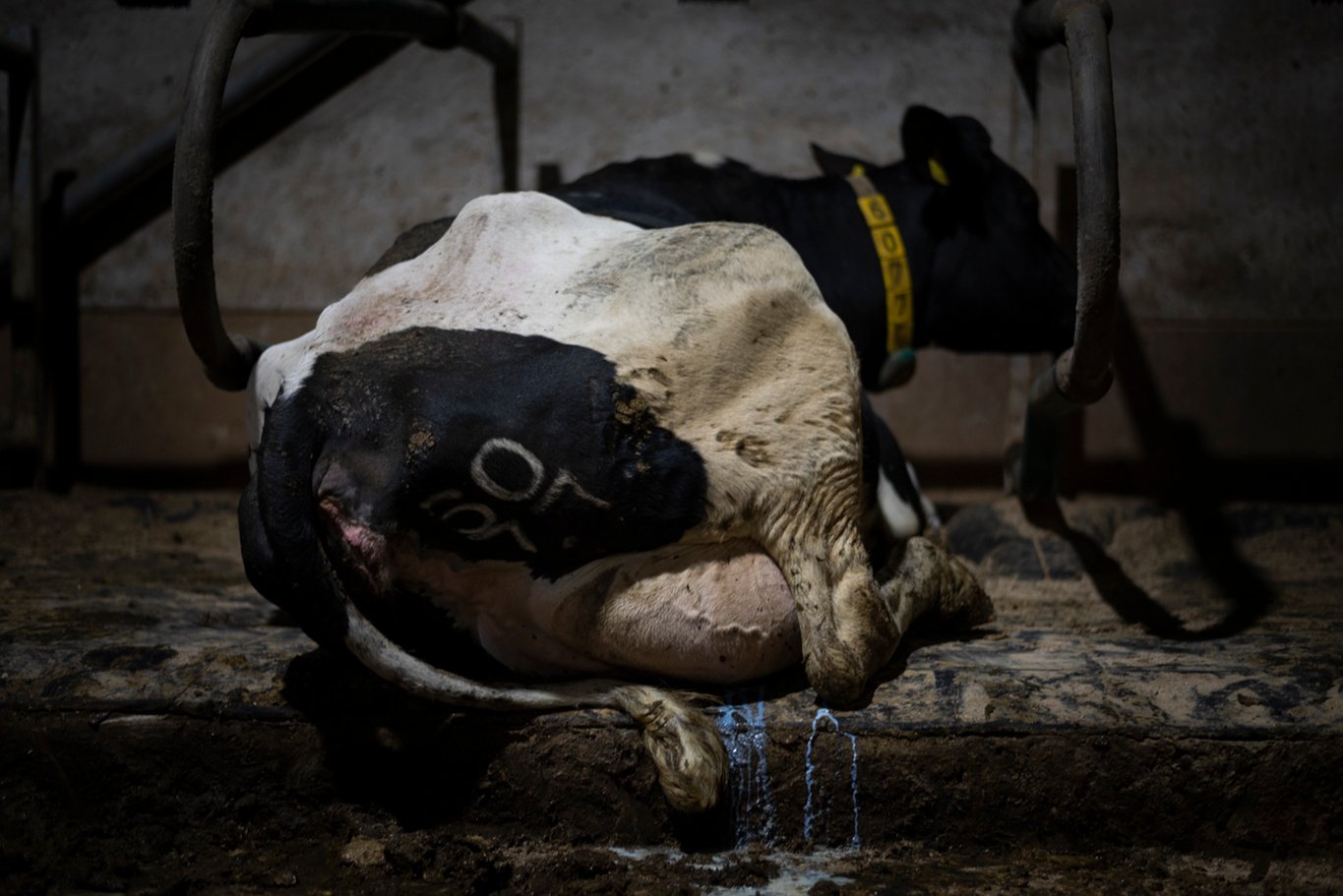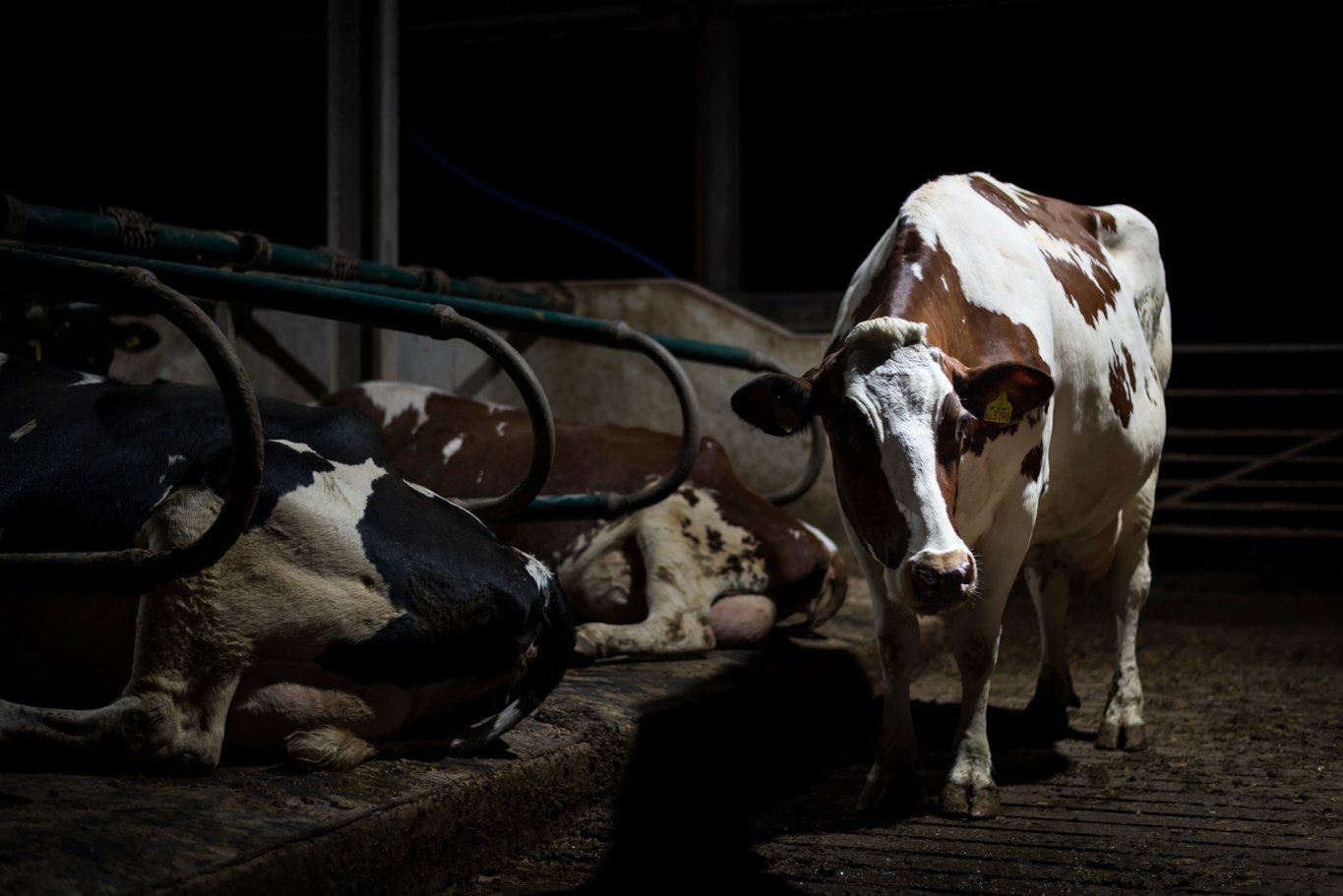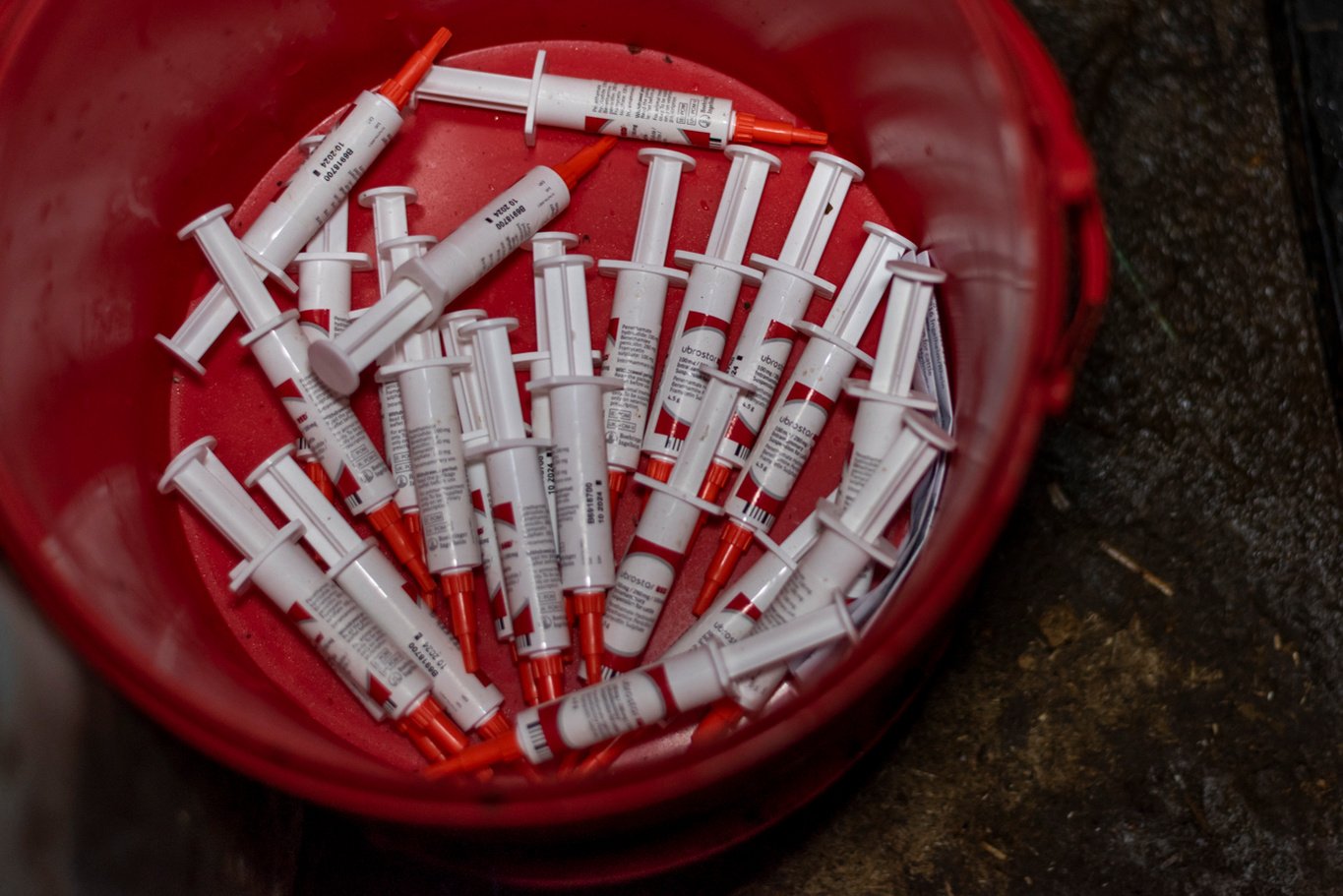In Photos: Behind Closed Doors: The Dairy Industry
With around 1.9 million cows living on 13,000 farms, the UK is one of Europe's highest milk producers. 2,000 of these farms are “zero-grazed”, which means the cows are kept permanently inside sheds.
Despite warnings from animal welfare and environmental advocates, the number of intensive dairy farms are increasing in the UK as farmers face increased pressure to maximise production while keeping costs to a minimum.
Campaigners argue that the acceleration of intensive farming is driving climate change, water and air pollution, biodiversity loss, and negatively affecting local communities. Animal rights investigators also say that the dairy industry is depriving cows of their basic needs while misleading consumers into believing that their milk comes from animals able to graze and roam freely. To uphold this myth, dairy farms are often difficult to access, meaning that investigators are only able to document the conditions undercover, typically at night.
This photo series was taken by photojournalist and Species Unite writer, Amy Jones, on multiple visits alongside investigators from the advocacy group Viva! to one of the UK’s leading dairy facilities, which supplies a host of Britain’s best-known companies, including Costa Coffee, McDonald’s, and British Airways. This farm is Red Tractor-approved, which is considered the world’s leading assurance for animal welfare.
All photos: Amy Jones/Viva!
Exposing the Systemic Abuse
This investigation, carried out by Viva!’s investigation team exposed rampant cruelty at this facility: cows that were emaciated, lame and struggling to walk, others manhandled, slapped and shoved, and yet more visibly injured or in shackles.
“This is modern dairy farming! It’s unacceptable that animals are treated like this in 21st century Britain.”
Viva! launched a campaign against Costa Coffee, the nation’s leading coffee chain, who source dairy from this farm. They rallied dozens of activists to take action and hosted over100 events across the UK to expose the horrors of the dairy industry to the general public. Thousands of people stopped to talk to Viva!, saw their placards, tried their dairy-free food samples, engaged on social media or read about the campaign in dozens of local news outlets.
But despite being made aware of the investigation, Costa Coffee refused to take action. They decided to continue to source milk from this dairy facility and claimed their own independent investigation confirmed the farm complied with Red Tractor standards.
“This doesn’t deny the cruel treatment towards cows that Viva! Campaigns documented – rather it gives further evidence that these conditions are the reality of what ‘high animal welfare’ looks like in the UK and is a damning reflection of the true Red Tractor standards,” stated Viva! in response to Costa’s decision. “The only way to avoid contributing to the cruelty of dairy farming is to go vegan and ask for plant-based milk in your coffee.”
Dairy Industry in the United States
The process of milk production in the United States is much the same as in the United Kingdom, with the conditions very similar to those documented in these photographs. In the US, 9.3 million cows are used for to produce dairy and over 90 percent of them are kept in indoor operations.
“ The only way to avoid contributing to the cruelty of dairy farming is to go vegan and ask for plant-based milk in your coffee.”
The typical cow in this industry will be repeatedly impregnated by artificial insemination and their calves will be taken away from them, usually just hours after birth, so that the milk can be sold to humans. Female calves are eventually used as dairy cows themselves, while the males - deemed as a ‘by-product’ of the industry - are either sold for cheap meat or killed immediately. When cows’ milk production begins to dry up, usually at around 4-5 years old, they will be slaughtered, despite having a natural life span of around 20 years.
On top of animal cruelty, the environmental impact of animal agriculture is devastating and responsible for more greenhouse gas emissions than any other food sector. Milk production alone contributes 2.9 percent of all human-induced GHG emissions. It also contributes significantly to soil degradation and deforestation and pollutes air and water.
What Can You Do?
Swapping animal products in favor of plant-based alternatives, like dairy-free milk and cheese, does not have to be the sacrifice that people make it out to be, but rather a way to invest in personal health and wellness, while protecting our environment and animals. To help you get started, Species Unite has released a free Vegan Starter Kit, complete with recipes, advice, and support. Download your free copy here.
Discover Viva!’s work and support their ongoing investigations here.
Learn more about Amy’s work to photograph animals here. She is also the co-founder of the photojournalism and media project, Moving Animals.
We Have A Favor To Ask…
Species Unite amplifies well-researched solutions to some of the most abusive animal industries operating today.
At this crucial moment, with worldwide momentum for change building, it’s vital we share these animal-free solutions with the world - and we need your help.
We’re a nonprofit, and so to keep sharing these solutions, we’re relying on you - with your support, we can continue our essential work in growing a powerful community of animal advocates this year.













